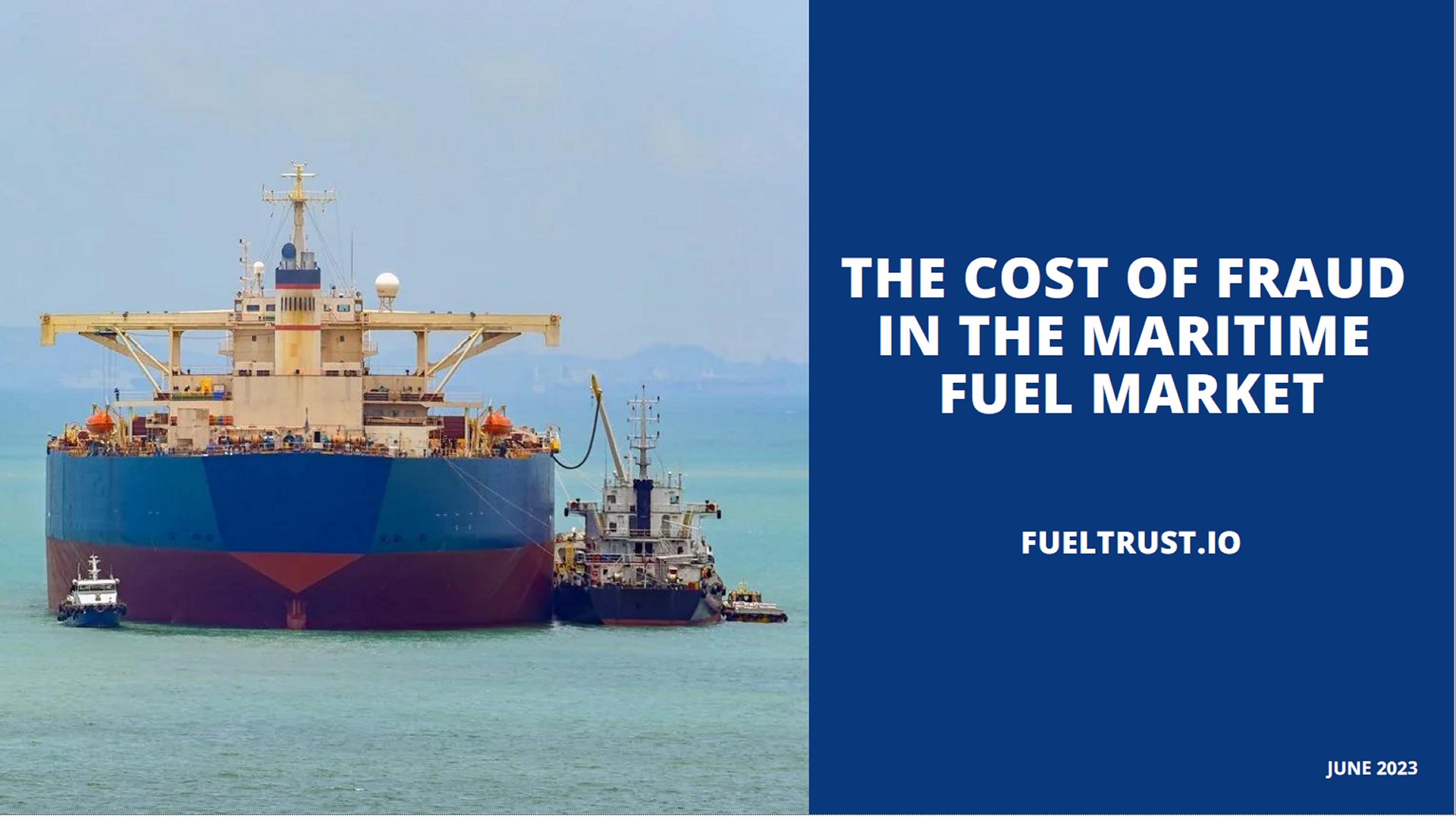FuelTrust finds fuel content discrepancies in 39% of global bunkers
Introduction of water into fuels identified as key issue.
Tech company FuelTrust has released a new report examining bunker discrepancies in the maritime industry, including examples of unethical practices and fraudulent activities related to bunkering.
FuelTrust's analysis found that between 2021 and 2022, more than 39% of global bunkers exhibited a fuel content delta of 2% or more compared to the amounts stated in their delivery paperwork.
The primary issue identified was the introduction of water into the fuels during the journey from onshore storage tanks to the ship's bunker tank. This problem typically involved an increase from 0.1% to above 0.25% water content, which, although below the regulated threshold, still resulted in average losses of $14,910 per affected delivery.
Bunker fuel account for more than 50% of a vessel's operational expenses, meaning fraudulent practices and inadequate supply chain management can significantly affect the profitability of vessel owners and charterers, and fuel suppliers. Just this month, eleven ships lost propulsion, and over 100 ships were affected in a single incident of fuel contamination in Houston.
Even fuel considered 'on-spec' (meeting specified quality standards) experiences volume or content issues, leading to financial losses or engine problems. In the past year, over 600 vessels were disabled through fuel problems, despite the fuel being 'on-spec', resulting in estimated global supply chain losses exceeding $5 billion. Both fuel suppliers and shipowners incurred financial losses, which are difficult to detect and make claims against.
FuelTrust's AI-based approach to creating a trusted fuel ecosystem through transparency and traceability addresses the challenges in the fuel supply chain, particularly in the maritime sector. By providing visibility into the final outcomes of fuel products, fuel suppliers can better understand and validate their offerings, while fuel buyers can combat fraud, minimize losses, and mitigate environmental risks.
Jonathan Arneault, CEO and Co-Founder of FuelTrust, commented: "This new research across the global bunkering market emphasizes the need for better transparency. By providing visibility, traceability, and security throughout the fuel supply chain, FuelTrust is improving operational efficiency, helping reduce environmental impact, and fostering trust among all stakeholders."
"As the latest contamination case demonstrates, it's essential that ship owners, bunker suppliers and charterers can gain better insight into their fuel supply chains. Better information on the fuel we use is also a foundational block of any serious GHG reduction strategy."
To view the whitepaper, entitled 'The cost of fraud in the maritime fuel market', please click here

|
IMO approves pricing mechanism based on GHG intensity thresholds
Charges to be levied on ships that do not meet yearly GHG fuel intensity reduction targets. |
|
|
|
||

|
VARO Energy expands renewable portfolio with Preem acquisition
All-cash transaction expected to complete in the latter half of 2025. |
|
|
|
||

|
NYK trials biofuel in milestone coal carrier test
Vessel is used to test biofuel for domestic utility company. |
|
|
|
||

|
H-Line Shipping orders LNG bunkering vessel
Vessel with 18,000-cbm capacity to run on both LNG and MDO. |
|
|
|
||

|
How to engineer and manage green shipping fuels | Stanley George, VPS
Effective management strategies and insights for evolving fuel use. |
|
|
|
||

|
Swedish government bans scrubber wastewater discharges
Discharges from open-loop scrubbers to be prohibited in Swedish waters from July 2025. |
|
|
|
||

|
MAN Energy Solutions achieves 100% load milestone for ammonia engine
Latest tests validate fuel injection system throughout the entire load curve. |
|
|
|
||

|
Petrobras secures ISCC EU RED certification for B24 biofuel blend at Rio Grande
Blend consisting of 24% FAME is said to have been rigorously tested to meet international standards. |
|
|
|
||

|
Stolt-Nielsen to fully control Avenir LNG with acquisition
Share purchase agreement to buy all shares from Golar LNG and Aequitas. |
|
|
|
||

|
Bureau Veritas supports launch of CIMC SOE's LNG bunkering vessel
Handover of Seaspan Energy's cutting-edge 7,600-cbm vessel completed. |
|
|
|
||

